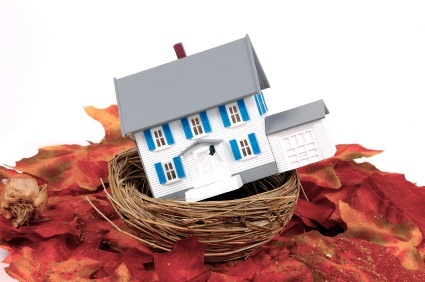
Do I Need To Sell My Home Before I Can Qualify For A New Mortgage On Another Property?
Although every situation is unique, it is not uncommon for homebuyers to qualify for a mortgage on a new home while still living in their primary residence.
Perhaps you are outgrowing your current house, or have been forced to relocate due to a job transfer? Regardless of the motivation for keeping one property while purchasing another, let’s address this question with the mortgage approval in mind:
So, Do I Have To Sell?
Yes. No. Maybe. It depends.
Welcome to the wonderful world of mortgage lending. Only in this industry can one simple question elicit four answers…and all of them may be right.
If you are in a financial position where you qualify to afford both your current residence and the proposed payment on your new house, then the simple answer is Yes!
Qualifying based on your Debt-to-Income Ratio is one thing, but remember to budget for the additional expenses of maintaining multiple properties. Everything from mortgage payments, increased property taxes and hazard insurance to unexpected repairs should be factored into your final decision.
What If I Rent My Current Property?
This scenario presents the “maybe” and the “it depends” answers to the question.
If you’re not quite qualified to carry both mortgages, you may have to rent the other property in order to offset the mortgage payment.
In that scenario, the lender will typically only count 75% of the monthly rent you are proposing to receive.
So if you are going to receive $1000 a month in rent and your current payment is $1500, the lender is going to factor in an additional $750 of monthly liabilities in your overall Debt-to-Income Ratios.
Another detail that can present a huge hurdle is the reserve requirement and equity ratio most lenders have. In some cases, if you are going to rent out your current home, you will need to have at least 25% equity in order to offset your payment with the proposed rent you will receive.
Without that hefty amount of equity, you will have to qualify to afford BOTH mortgage payments. You will also need some significant cash in the bank.
Generally, lenders will require six months reserve on the old property, as well as six month reserves on the new property.
For example, if you have a $1500 payment on your old house and are buying a home with a $2000 monthly payment, you will need over $21,000 in the bank.
Keep in mind, this reserve requirement is incremental to your down payment on the new property.
What If I Can’t Qualify Based On Both Mortgage Payments?
This answer is pretty straightforward, and doesn’t require a financial calculator to figure out.
If you are in this situation, then you will have to sell your current home before buying a new one.
If you aren’t sure of the value of the home or how your local market is performing, give us a ring and we’ll happily refer you to a great real estate agent that is in tune with property values in your neighborhood.
…..
As you can tell, purchasing one home while living in another can be a very complicated transaction. Please feel free to contact us anytime so we can review your specific situation and suggest the proper action plan.
_________________________________
Related Articles – Mortgage Approval Process:
- Basic Mortgage Terms
- How Much Can I Afford?
- Common Documents Required For A Mortgage Pre-Approval
- Top 8 Questions To Ask Your Lender During Application Process
- What’s The Difference Between An Investment Property, Second Home and Primary Residence?
- Seven Items Real Estate Agents Need To Know About Your Mortgage Approval
